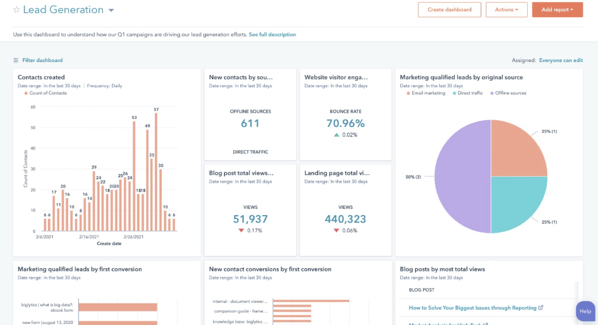To have winning marketing campaigns and content, you need to understand the analytics behind your strategies.
Content marketing analytics look at the metrics your team cares about most to provide insight on the health of your current strategies, progress towards goals, campaign success, and more.
Content Marketing Analytics
There are a number of marketing analytics tools available with customizable metrics, a variety of visualizations and dashboards, and integrations to help you measure the impact of your marketing strategy.
Let’s dive into your best options.
1. HubSpot Marketing Analytics and Dashboard Software
Best content marketing analytics tool for: Measuring the performance of all your marketing campaigns and combining resulting data with your marketing software and CRM platform.
HubSpot’s Marketing Analytics and Dashboard Software makes it easy to access all data and insights from a single location in seconds.
Trigger and/or schedule touchpoints, track custom interactions that are unique to your business, and indicate when a customer is ready for another stage of the buyer’s journey with behavioral events.
Use attribution reporting to connect every customer interaction to an associated record and revenue generated. Pre-built and customizable dashboards, templates — as well as Custom Objects — visualize your data in a format that works for your team so you can easily apply it to segments, campaigns, workflows, and more.
Price
There are four Marketing Hub plans with different analytics features and flexibility ranging price from free (forever) to $3,200 per month.
2. Buffer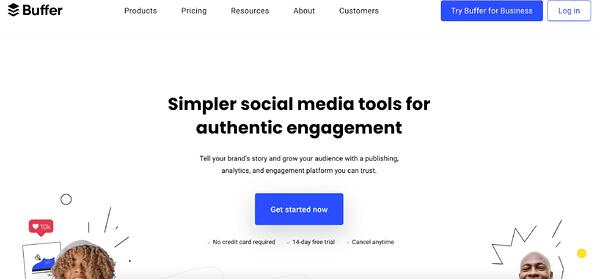
Best content marketing analytics tool for: Understanding channel performance in detail with customizable reports.
Buffer’s content marketing analytics offers the option to build reports according to your goals. Add or remove custom metrics about the performance of numerous social media accounts. You can export those reports to share them easily.
Reports are updated daily so you can be sure you’re receiving timely data. Buffer’s analytics are designed to help you see channel performance at a detailed level on one dashboard.
The software also offers engagement metrics for each account individually. This helps you gain an intricate understanding of how customers are interacting with social content. Measure stories, posts, and hashtag performance as well as access the demographics of your audience across channels.
Buffer’s Marketing Analytics product, Analyze, has two payment options with different features and flexibility that cost $35 per month or $50 per month.
3. Google Analytics
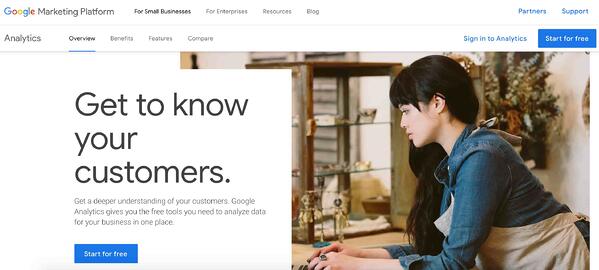
Best content marketing analytics tool for: Integrating content marketing analytics seamlessly with your other Google business tools and making data-driven content marketing strategy decisions.
Google Analytics’ intuitive interface is easy to navigate and can be used to understand the performance of your content across multiple platforms. You can also choose to analyze your content marketing efforts across all of your web pages or on an individual page level.
To understand how your content marketing strategy is doing, Google Analytics offers metrics for traffic, navigation, conversion, and organic search. The tool allows you to track user-level interactions to provide insight into the ways your audience is engaging with your content.
This analytics tool also integrates with all of Google’s other business software so you can access all of your data and insights in one place.
Price
Google Analytics offers a free and a paid plan. The free plan is ideal for SMBs and you can get started using it immediately. Meanwhile, the paid plan, called Analytics 360, is ideal for enterprise-level companies and requires you to speak with a sales rep for a quote.
4. SimilarWeb
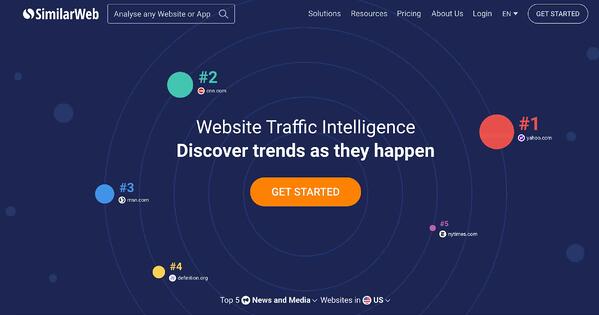
Best content marketing analytics tool for: Understanding where your website and content strategy stand in comparison to industry standards.
SimilarWeb provides traffic and engagement industry standards and tells you where your website stands among them. This information is useful for discovering how performance stacks up against the competition.
With SimilarWeb, break down your daily active users, sessions per user, use-time, and rank. Discover more information about your audience — such as repetitive behaviors or interests — to improve your acquisition strategy.
Price
SimilarWeb offers two plans, one of which is free and another that’s meant for enterprise businesses and requires you to contact a rep for a consultation.
5. Moz
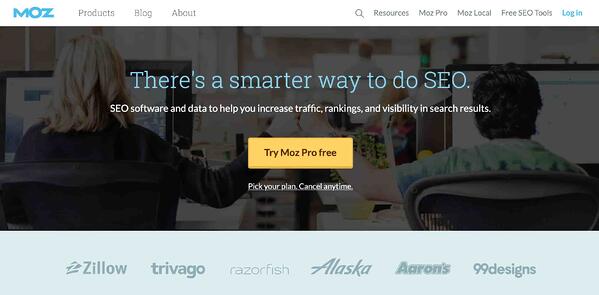
Best content marketing analytics tool for: Measuring your SEO content strategy and determining which keywords you should be using.
Moz measures the impact of your search-engine-optimized content. Gain insight into how your work is ranking among others in your industry and which keywords are the most effective to use in your strategy.
Moz’s software tracks your site’s keyword rank and how visible it is over time to learn what is and isn’t performing well among audiences.
Additionally, track how competitors rank on search engine results pages (SERPS) — this allows you to spot areas for improvement and the parts of your campaign you can use to target them. To help with this, use Moz’s detailed reports to see how your content is reaching audiences and what you can do to improve.
Price
There are two main Moz solutions, Local and Pro. Both Local and Pro have different plans ranging in features, flexibility, and price. Local ranges in price from $129-299 while Pro ranges in price from $99-599 per month.
6. Hotjar
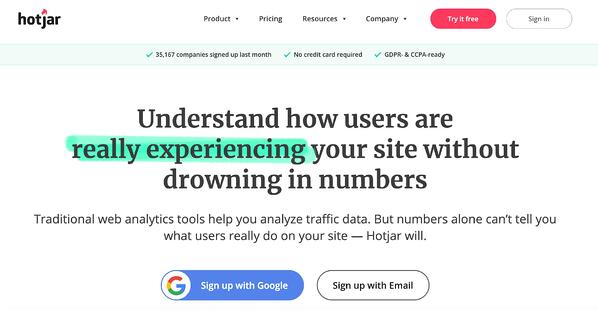
Best content marketing analytics tool for: Tracking and visualizing sessions on your website with heat maps.
Use Hotjar to track sessions on your site. Hotjar provides heat maps about how and where customers spend their time while on your website.
Hotjar’s real-time videos capture how your visitors are navigating and using your website. This allows you to hone in on the content that’s catching your customer’s eye. You can also track conversions and make inferences about which stage of the buyer’s journey customers might be entering or leaving.
Price
Hotjar offers three types of plans. There are two options for those who want a Personal plan that is either free or $39 per month. These options are ideal for personal and low-traffic websites.
The Business plans range in price from $99-$989 per month depending on the number of sessions per day you receive. Lastly, the Agency plan requires you to contact a rep to chat about a plan for your team and clients.
7. Semrush
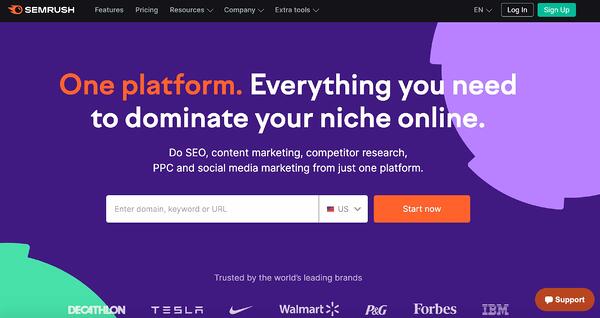
Best content marketing analytics tool for: Tracking SEO and keyword performance across your web pages and content strategy.
Semrush is used for search engine optimization (SEO) tracking and helps you track keyword performance in your content as well as monitor brand mentions cross-platform.
Additionally, the tool tracks Google rankings and which of your web pages receive the most traffic. This is helpful because discovering what drives visitors to your site allows you to adjust the content you’re presenting accordingly.
Price
Semrush offers three plans that range in price from $119 to $449 per month.
8. Quintly
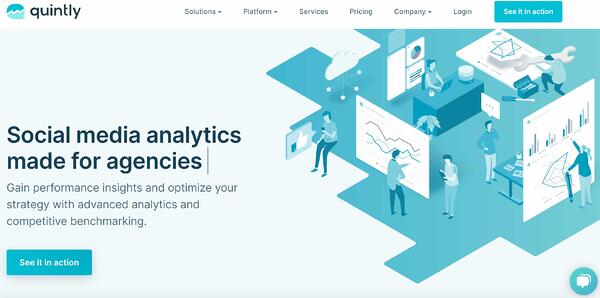
Best content marketing analytics tool for: Improving social planning by analyzing the success of your social media marketing strategy with customizable metrics.
Quintly provides you with the insight necessary to analyze your content marketing campaigns. It helps you make smarter decisions when it comes to social planning by equipping you with customizable metrics so you can better understand how your marketing strategy is working.
Quintly does a deep dive into all of your accounts to uncover metrics that matter to your teams and goals, and you can sort and share reports by team so everyone gets the information they need.
Reports can also be automated and measured by impact using Quintly’s machine learning system. Users can access the API, integrate with popular software like Google Search, and overcome data silos.
Price
Quintly’s custom plans start at $300 per month.
9. BuzzSumo
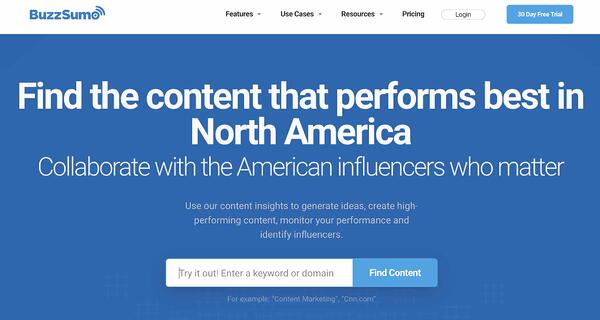
Best content marketing analytics tool for: Visualizing and analyzing real-time marketing trends to tailor content to your target audience.
View and analyze marketing trends in real-time with BuzzSumo by topic so you’re able to create content that’s likely to be relevant to your audience. Trends can also be filtered by location — this way, you’ll have an understanding of what’s popular by region.
BuzzSumo lets you customize your feed so you can get the data that matters most to you. Identify relevant keywords to include in your campaigns, access examples of content proven to be successful on BuzzSumo’s site, and use the data you obtain through the tool to discover how you can drive the most traffic to your marketing content.
Price
BuzzSumo offers four plans that range in price from $99 to $499+ per month.
10. Kissmetrics
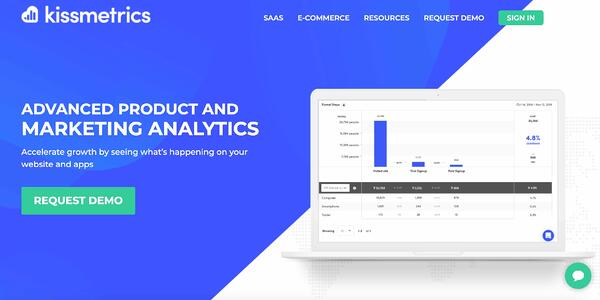
Best content marketing analytics tool for: Discovering how your audience interacts with your website and apps and understanding their behaviors.
Kissmetrics allows you to spot a customer’s journey across multiple devices, analyze their behavior on your website, and review conversion metrics (e.g. bounce rate and time-on-site).
Kissmetrics focuses on behavioral analytics which is helpful if you want to learn about how customers react to and interact with your content. This will also provide insight into what’s most valuable to users and how to keep visitors coming back.
Price
Request a Kissmetrics demo or check out the payment plans for their two main products, one of which is meant for SaaS and one for ecommerce.
The SaaS plan comes with three payment options — those plans are $299, $499, or a custom price (based on your custom plan). Ecommerce also has three plans that cost $299, $499, or a custom price (based on your custom plan).
11. Databox
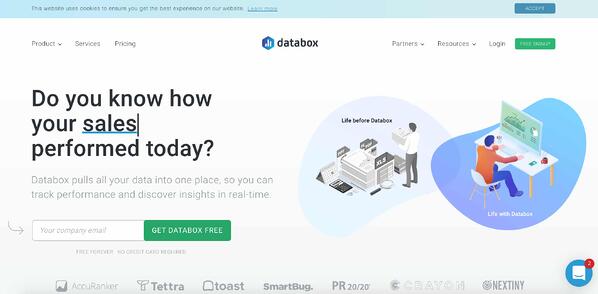
Best content marketing analytics tool for: Combining all of your marketing data to track and understand the success of your strategy in a single location and in real-time.
Databox is a business analytics and KPI dashboard platform that offers insight into the state of your business. The tool organizes all of your business data — from any source — into a single location for accessible performance tracking.
Over 70 available integrations make the process of bringing your data into the tool — as well as displaying, analyzing, and sharing it — simple.
The Goal Tracking feature allows you to track progress towards your targets by assigning and focusing on SMART goals within the tool.
Scorecards are a feature that notifies you (daily, weekly or monthly) of any updates to your KPIs. There are also other alerts you can receive the moment your data is looking off so you can efficiently resolve the issue before it gets worse.
Price
Databox offers a regular version of their product and an Agency edition. The regular version costs anywhere from free to $248 per month. As for the Agency version of Databox, there’s a free plan but if you need more flexibility, contact a rep for billing details.
12. Supermetrics
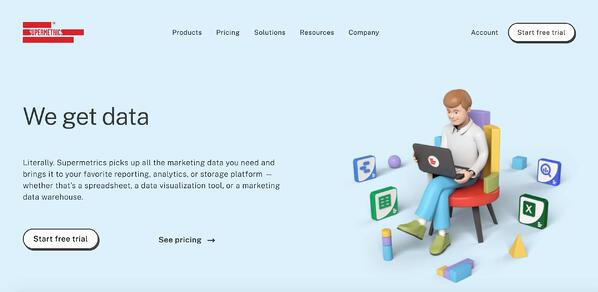
Best content marketing analytics tool for: Taking marketing data from any source and moving it into Google Sheets, Google Data Studio, Microsoft Excel, Google BigQuery, or Snowflake for analysis.
Supermetrics is a business analytics tool that you can use to pull marketing data (e.g. SEO, PPC, social media, and web analytics data) from any source and move it into Google Sheets, Google Data Studio, Microsoft Excel, Google BigQuery, or Snowflake. Use Supermetrics as a reporting, analytics, and data storage tool.
Bring your favorite metrics and dimensions into Supermetrics. Then, organize and filter your data within Supermetrics to analyze the success of your efforts and identify areas for improvement.
Price
Supermetrics offers multiple plans for all seven of their products, some of which require you to contact a rep and some of which list pricing on their unique web page.
13. Demand Sage
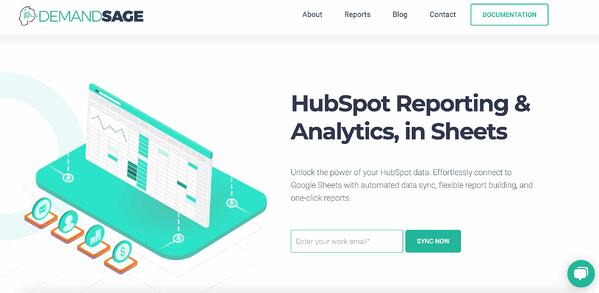
Best content marketing analytics tool for: Moving all of your HubSpot data into Google Sheets for easy analysis in your platform of choice.
Demand Sage is a tool used to bring all of your HubSpot data into Google Sheets. There are one-click, customizable reports to help you understand your marketing and sales success and which areas to focus your efforts. Demand Sage offers one-click data sync and one-click, flexible reports.
Within your spreadsheet, create granular, record-level reports and use the table builder to display your data with any view you’d like.
Additionally, attribution and revenue reporting connects marketing and sales data in your reports for greater internal alignment and insight into how your pipeline is working as well as what’s driving revenue.
Price
Demand Sage is free.
14. Grow.com
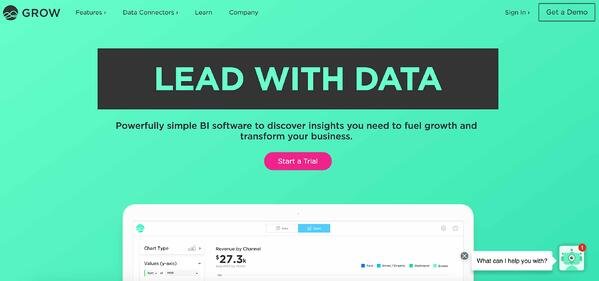
Best content marketing analytics tool for: Importing and transforming business data from a variety of sources and then combining that data on custom dashboards.
Grow.com is a business intelligence platform that allows you to import and transform your business’s data from a number of sources and create dashboards with the metrics that matter to you.
Once your data is imported into the platform, it keeps your most relevant data at your fingertips. Build custom metrics, bring disparate data sources together, and select from a number of chart types to visualize your data however you want to. You can also easily share metrics and dashboards with team members to ensure everyone knows where to focus their efforts.
Price
Get a free Grow.com demo and talk to a rep about the price of the right plan for your business.
15. Plecto
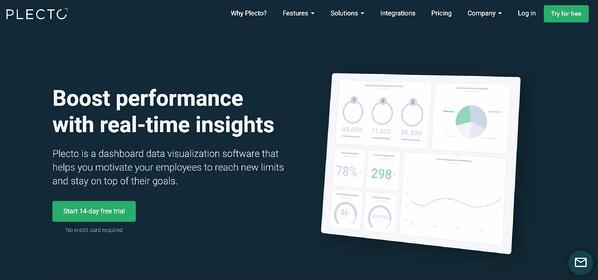
Best content marketing analytics tool for: Keeping your team on top of goals and targets with dashboard data visualization software.
Plecto is a dashboard data visualization platform ideal for discovering real-time insights from an unlimited number of sources you pull your data from. Filter across the sources you integrate with Plecto and display data on your dashboards with different variables as needed.
Display data with pre-built KPI dashboards in Plecto or customize your own. There are also gamification features to increase employee engagement and motivation as well as keep team members focused on their goals.
Price
Plecto offers three payment options depending on which plan you choose ranging from $200 per month, $350 per month, or a custom price (based on your Enterprise plan).
16. Adverity
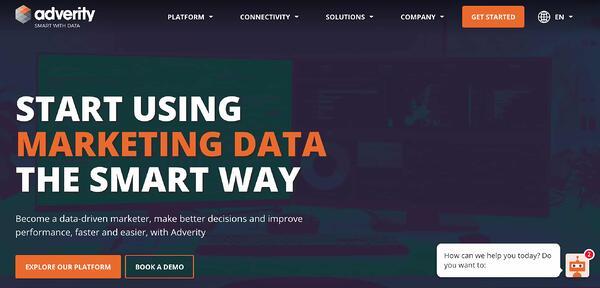
Best content marketing analytics tool for: Automating data integration across hundreds of sources.
Adverity is an intelligent marketing data analytics platform ideal for data-driven marketing. The tool automates data integration from hundreds of sources to give you a single view of marketing performance.
Adverity makes it easy to remove any data silos you may have and provide easy access to centrally-located marketing data so your team members can identify and analyze the information they need.
Adverity comes with augmented analytics, meaning it uses AI to identify trends, areas for improvement, strengths, and new insights in your data. It also automates the process of creating marketing reports and data visualizations to save you time.
Contact Adverity to get a custom quote on the right plan for your business.
Performance Content
When measuring the performance of your content, you’ll need to 1) decide which performance indicators you’re going to measure, 2) track those metrics and KPIs, and 3) analyze and apply your findings.
But first, what is performance content?
Performance content is content that you create and optimize with a specific business goal in mind (e.g. increasing user sign ups on a web page or your Blog).
Content Performance Indicators
Here are some common website metrics and KPIs you might choose to track in order to analyze the success of your content.
1. Web Traffic
The amount of traffic you get on your website and individual pages.
2. Page Views
The number of page views a web page gets from visitors.
3. Impressions
The number of times an ad or web page is displayed to an individual.
4. Sessions
A group of actions an individual website visitor takes while on a website during a specific amount of time.
5. Bounce Rate
The percentage of visitors who come to your website but don’t convert in any way — rather, they leave, or bounce, from your site before taking action.
6. Search Engine Optimization (SEO)
Keyword and search engine results page (SERP) success and performance.
7. Engagement
The number of interactions that your visitors have with your content (e.g. comments, shares, likes, forwards, subscriptions) and how long engagement lasts across those channels and web pages.
8. Social Media Engagement and Interactions
Depending on your social media platforms, there will be specific metrics related to engagement and interactions on a post and/or piece of content that you can analyze (views, shares, comments, likes, etc).
9. Lead Generation and Conversions
The number of acquired leads, conversions, and sales that result from your content (e.g. email sign ups, blog subscriptions, CTA clicks, downloads, product purchase.)
11. Brand Awareness
The way your target audience learns about your brand and becomes aware of your products, mission, and what it is you do.
This can mean taking a look at other metrics on this list such as page views, social media engagement (or simply using the process of social listening), downloads, video views, referrals, and resource/ document reads or shares.
12. Customer Loyalty
The amount of content that your current customers consume and/or engage with (e.g. if a current customer is a blog subscriber who receives articles in their email inbox weekly).
13. Upsell/ Cross-sell
Sales for new, additional, or upgraded products that you offer.
Apply Content Marketing Analytics to Grow Better
Content marketing analytics tools have the power to help your team understand the health of your strategy, audience behaviors and interactions, progress to goal, and more.
As a result, you’ll have the information you need to improve the customer experience, resonate with your audience through your content, and increase conversions.
Editor’s note: This post was originally published in June 2020 and has been updated for comprehensiveness.
![]()


